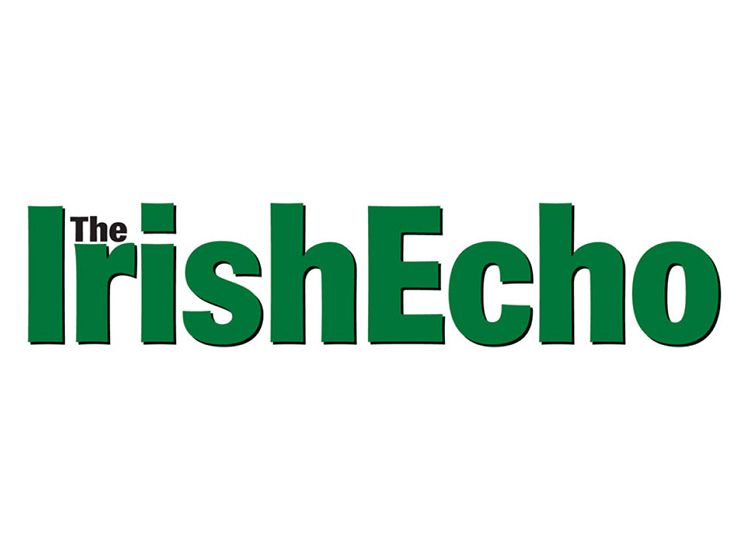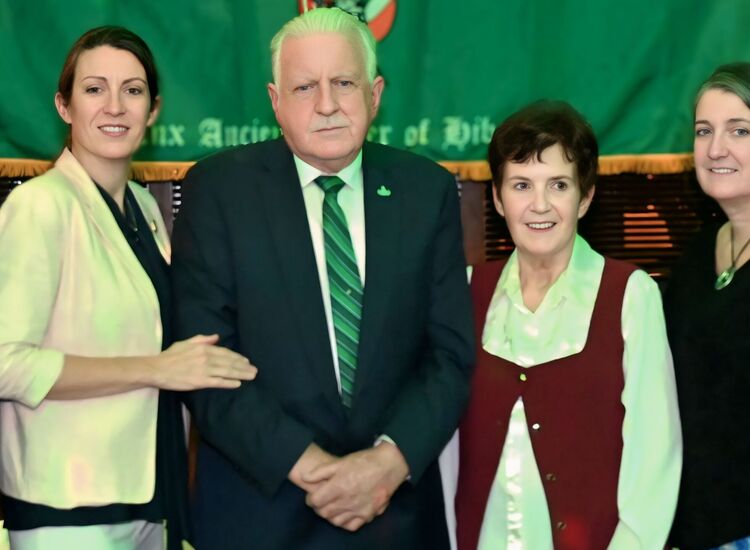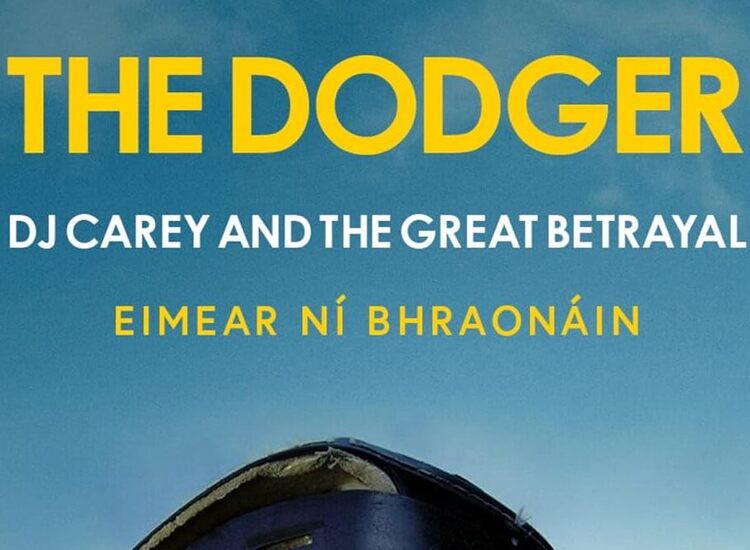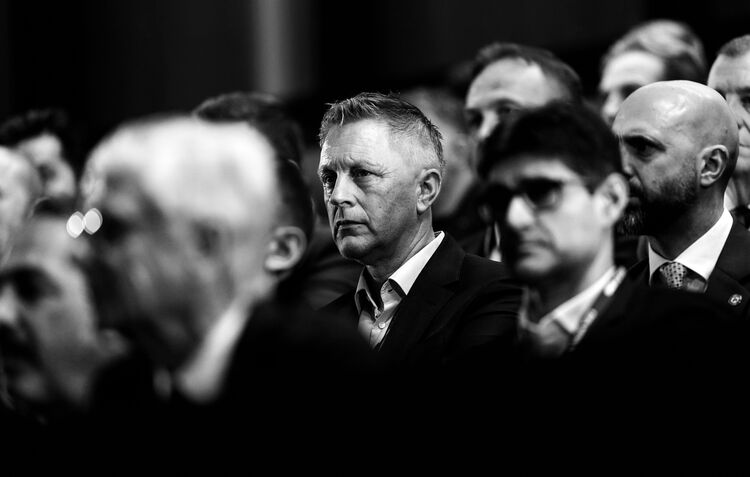Christy Ring being interviewed not long before his death in 1979.
PART II
By Dave Hannigan
When Wexford beat Cork in the All-Ireland final in 1956, Art Foley carved his own place in folklore with a wonder save from Christy Ring three minutes from the end. It was a miss that in time has become as famous as any of his goals.
“Well actually l blocked it with the hurl,” said Foley. “The ball went straight up in the air. Then it was just like a camera: you're looking around to see who's around. [Josie] Hartnett and [Gerry] Murphy were coming in at full belt so l blocked it out to [Jim] Morrissey. Christy was full sure he had a goal and that's the whole idea of it. He came rushing in after it and when he saw the ball wasn't in the net the first thing he did was stuck out his hand and says, ‘You little black bastard, you're after heating us.’”
Even in defeat, Ring was the story as Nick O'Donnell and Bobby Rackard chaired their vanquished opponent off the field that day. It was an incredibly magnanimous gesture that illustrates the regard his peers had for him. Not all of them were fond enough of him to ever pay him the compliment the Wexford duo did that day but they all respected the fact they were in the company of someone special.

Wexford goalkeeper Art Foley, on the ground left, made a famous save from Ring in the 1956 All Ireland final.
“Except among truest friends, the immensity of his generosity and intellect remained well-wadded in reticence,” wrote Kevin Cashman in the Sunday Independent in December, 1995. 'That changed utterly at every throw-in of a sliothar. He would exhort and goad his own, and seek to disconcert and down-face the other lot with trenchant wit and color.”
Some of the onfield exchanges have passed into folklore. “I’ll open you the next time the ball comes in here,” threatened one opponent. “If you’re still here,” replied Ring.
The physical cut and thrust of hurling in the 1940s ‘50s exhilarated him. Although some in Galway still nurse a grudge about the incident with Mickey Burke in the 1953 All-Ireland final, and nobody has yet established beyond reasonable doubt it was Ring who hit Tipperary's Tom Moloughney in the 1961 Munster decider, most of his rivals testify he was, in that classic cliche, hard but fair. Even hard but fair was open to a considerably more robust interpretation then than now, he certainly wasn't considered dirty.
“During my playing career, I met lot of players that were faster, taller and better in several ways but to be good hurler, you have to have something the others haven't got,” said Ring. “I had that strength. I never met anybody physically stronger than myself. I achieved this strength by hard, physical training. Allied to this, I had fierce determination when going for a ball. I would go through a stone wall to get a fifty-fifty ball. I would stop at nothing. My strength was largely hidden because I wasn't a big fellow. I never weighed less than 13 stone. I knew that weighing 13 stone and traveling at speed, I could take on any player. I only used my strength when needed.
“All round physical strength was my best weapon. I never did weightlifting or anything like that to develop this strength, l had it automatically and I’d say it was in the mind. Seventy-five per cent of everything is in the mind and it's mind that counts. Most times, if you get the better of your opponents, the rest takes care of itself. When you are playing games a while, you have great confidence in yourself, if you are really a great player. You actually put it up to the other fellow. It's like saying to your opponent, ‘that's the ball and l am going to get it’. You let him make up his own mind but if you are really good you'll get it... you have eight or nine skills that you have really perfected and you decided that you are going to use one or more of them. The game is all about confidence in what you have learned.'
His supreme confidence and inordinate strength also came infused with passion. He hated to lose and was always conscious of the record hooks. As he was being carried shoulder-high following the victory over Tipperary in the 1952 Munster final, blood was leaking down his face but when he saw Eamonn Young approaching, he manically shouted, “For the Doc... For the Doc.” Young's brother, Dr. Jim, had been one of the Cork four-in-a-row team and Cork's win had ended Tipp's gallant attempt to emulate that feat.
“The greatest win we ever had was against Tipperary in the 1952 Munster final,” Ring said. “We went into Limerick in 1952 and we had trained hard, we had ten changes from the year before. From a Corkman's point of view, we said we were going out there to play for Cork, and when you play for Cork there’s no looking back. We played that day in Limerick but it was with heavy heart we came to Carrigtwohill that mooring when Mattie Fuohy said he wasn’t playing.
'Mattie, I reckon, is the best man on our team. No doubt about it. Mattie is the man. We threw Wille John [Daly] back in the back line and we were short a forward but when the full-time whistle blew in Limerick there were two points in it. I think that was a great achievement for this Cork. There were some of them new and some of them never hit a ball in a Munster final but that day they hit them harder than any Cork team that came before.”
That quote is taken from an interview with Ring done in Barry’s Hotel on the morning of the 1953 All-Ireland hurling final. Three Cork fans, Ger Murphy, Sean of O'Connor and Jim Ahern brought a basic dictaphone along to record some of the players, and Ring, intrigued by the new- fangled technology, agreed to speak to them. When Michael Moynihan wrote a piece about the trio in the Irish Examiner half a century later, the fresh quotes were a welcome addition to the canon. Ring gave few enough in-depth interviews in his time, although whenever he did speak out, it was always with a purpose. On one occasion, he called for the abolition of points, games of greater duration and the throw-in to be replaced by a puck-out.
Befitting his standing as a true Corinthian, he eschewed countless opportunities to cash in on his fame. He wouldn't allow a pub in New York to pay him to take his name in its title, rebuffed repeated lucrative offers from newspapers and publishers to write his life story and made do with his earnings from driving an oil truck. The oil truck from which he would alight in a field most lunchtimes with his hurley and ball to further work on his skills. Admirable as those decisions were from a quality of life point of view, they added to the eccentric view many had of him.
One afternoon in 1964, Ring was walking along Patrick Street with the journalist Breandan O hEithir when their progress was suddenly checked by the sound of jeers coming from across the road. At a safe distance, a gaggle of students were boldly chanting “Dirty Ring” in their direction, a mocking reference to an incident the previous Sunday in a county championship match where the UCC player marking the Glen Rovers' man had suffered a broken wrist. The result of a bad fall, the injury nevertheless spawned a false run rumor about foul play and spotting Ring in his civvies, these miscreants sought to milk the moment for all it was worth.
Duly rising to the bait, he fired back abuse at his assailants, his apoplexy only adding fuel to their fire. As O hEithir tried his best to calm him down, advising that the best policy was to ignore the taunts, Ring turned on him too. “That's all you know then,” said the winner of eight All-Ireland hurling medals. “You probably think a respected man in this town. There are people in this town, boy, who think I'm locked up in the red house [the mental asylum on the Lee Road] on the hill all week and only let out to hurl on Sundays.”
At this remove, it's difficult to envisage anybody, even students under the influence of drink, speaking with anything less than awe about Ring. In life, he was adored but in death, he has been, rightly, exalted and venerated, That the bridge named after him abuts Cork Opera House and the Crawford Art Gallery is appropriate, a recognition that he was as much an artist as a sports-man. His brush may have been made of ash and his favored canvas a vast green sward but anybody who has viewed Louis Marcus's poetic film of Ring teaching the game's skills would acknowledge the aesthetic quality to his play.
Perhaps the best summation of his standing among his own is Niall Toibin's account of meeting him for the first time. At a post-All-Ireland hurling final function at the Spa Hotel in Lucan in the 1970s, Toibin had been invited along to do a turn. Although a selector by then, Ring was a surprise visitor to the dinner and when the seating was hastily rearranged to accommodate him, he was placed sitting across from the actor.
“You’re Toibin, aren’t ya?” asked Ring.
“Yes,” replied the actor.
“I like you,” said Ring.
“I felt that I could relax,” said Toibin. “He had sort of given me permission to stay.” A veteran of stage and screen, Toibin had wowed Broadway and lit up the West End but he knew he was in a room where the imprimatur of only one man really mattered.
The last hurling match he ever attended was a Harty Cup tie between the North Mon and St. Colman’s in Buttevant., a game long since consigned to history but one that of course has yielded yet another delightful Ring moment.
“St. Colman’s came out on the field 20 minutes before throw-in and went through an elaborate pre-match routine,” wrote Enda McEvoy in The Sunday Tribune. “Their calisthenics were keenly watched by Ring, who wasn’t impressed by this exhibition of style over substance and immediately announced that they had ‘only two hurlers.’ A few moments later one of the St. Colman’s mentors, a cleric, wandered over and solicited Ring’s opinion. ‘Ah Father,’ came the reply, ‘ye’re wasting yer time. The Mon will beat ye by four goals.’ The priest departed, shocked. The game ended in a 2-14 to 0-8 win for The Mon.”
A couple of days later, Friday March 2, 1979, Ring collapsed on the street outside the School of Commerce. A schoolteacher named Patricia Horgan was first to his aid and she whispered an act of contrition in his ear in the moments before he died. In an eerie coincidence, the pair had met before.
[caption id="attachment_111286" align="alignnone" width="300"]
Twenty-six years earlier a woman had been walking with her pram and baby behind the old Cork Athletic Grounds. As she made her way up by the Atlantic Pond a car turned in from the Marina. Seconds later another followed and tried to squeeze past. The possibility of her pram being crushed between the two cars flashed in front of the woman's eyes. The first driver spotted the danger and reacted. He pulled over on to the grass verge and made the other driver stop. The first driver was Ring; the infant in the pram was Patricia Horgan.
As word filtered through the city centre that fateful afternoon, the Taoiseach Jack Lynch's state car stopped at Brian Boru Bridge so he could buy the Evening Echo. He rolled down the back window and the newspaperman, Johnny Chris Kelleher, told him the news about the death of his friend and team»mate.
“Oh no,” said Lynch, “it can't be true.”
After an epic funeral that inspired comparisons with those afforded the martyred Lord Mayors, Tomas MacCurtain and Terence MacSwiney, back in the 1920s, they brought Ring back to Cloyne and buried him in a graveyard that had been one of the beloved playing fields of his youth. Around Ring’s wife Rita and his children Christy and Mary, was a crowd containing perhaps the greatest collection of hurlers ever gathered in one place together. They had come from all over to pay their final respects.
“As long as the red jerseys of Cork and the blue of Munster and the green, black and gold of Glen Rovers, colors that Christy wore with such distinction, as long as we see these colors in manly combat the memories of Christy's genius and prowess will come tumbling back with profusion,” said Lynch, in his graveside eulogy, his voice crackling with emotion. “We will relish and savor them for we will hardly see their likes again. And men who are fathers and grandfathers now will tell their children and grandchildren with pride that they saw Christy Ring play. The story will pass from generation to generation and so it will live.
So it will live.”
Read Part I by clicking here.








